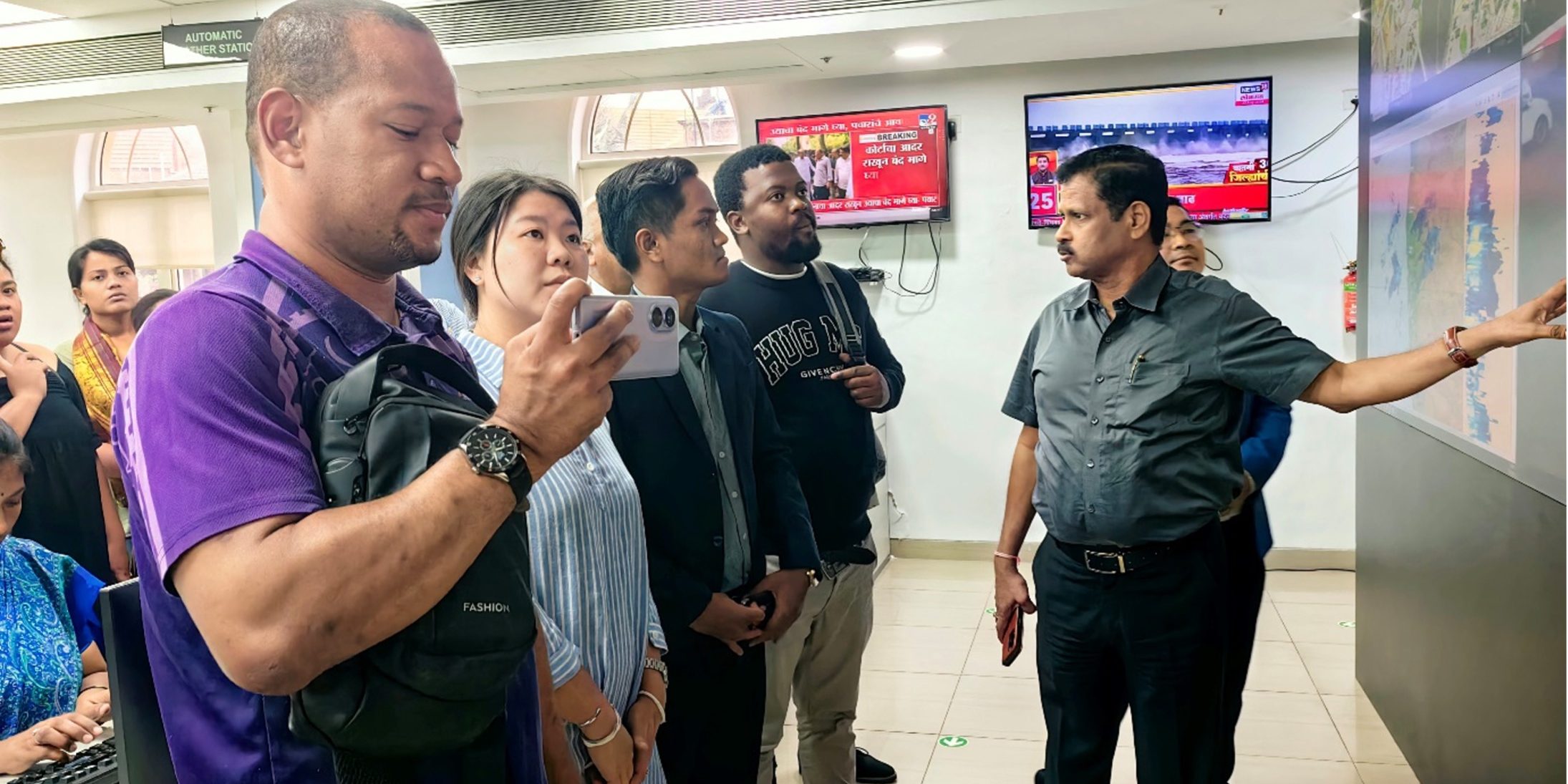While the Solomon Islands is still in the consultation stage of developing a multi-hazard policy and relevant frameworks to guide the successful implementation of its multi-hazard early warning system under the Early Warning for All Initiative, the Brihanmumbai Municipal Corporation (BMC) in Mumbai, India, has already established a state-of-the-art technological emergency service to protect its 13 million residents, plus an additional 7 million living in slums.
This is not to suggest that Mumbai is necessarily superior to the Solomon Islands, but it is worth noting that the BMC has a budget of USD $7.19 billion for 2024-25, which is more than the national budget of the Solomon Islands government for 2023-2024, set at $4.2 billion.
Director Shri Mahesh Naveka of BMC National Disaster Management shared this information with 23 journalists from the Indo-Pacific region during their visit to his office in Mumbai on Friday, August 23, 2024.
The journalists were invited by India’s Ministry of External Affairs for a familiarization visit from August 18-27.
The group represented a diverse range of countries, including Cambodia, Indonesia, Malaysia, the Philippines, Singapore, Thailand, Vietnam, Fiji, Kiribati, the Marshall Islands, Nauru, Palau, Papua New Guinea, the Solomon Islands, Tuvalu, Vanuatu, Mauritius, Seychelles, Mozambique, Kenya, South Africa, Tanzania, and Lao PDR.
Naveka emphasized that Mumbai is at the forefront of disaster management and early warning systems. “We have a robust warning system in Mumbai, which is divided into 25 administrative wards. Each ward has a population of about 1.5 million, and we decentralize disaster management within each ward,” he explained.
He added that Mumbai’s Geographic Information System (GIS) includes multiple layers for comprehensive monitoring and management. The city also manages COVID-19 data through dashboards and has developed 120 weather information mobile apps that integrate all relevant information into the control room.
Additionally, Mumbai is active on social media platforms to disseminate crucial messages to the public. Naveka noted that all buildings in Mumbai are equipped with CCTV, and critical infrastructure such as hospitals and schools are built to be sustainable and are constantly monitored. “If buildings are deemed unsafe, we have procedures to evacuate people immediately. We have zero tolerance for unsafe conditions,” he said.
Naveka also mentioned that Mumbai coordinates with external entities when necessary to ensure effective disaster response and management.
The Solomon Islands Government could benefit from collaborating with India through a bilateral agreement, leveraging Mumbai’s BMC expertise to enhance its early warning system.
By EDDIE OSIFELO
In Bengaluru, India









